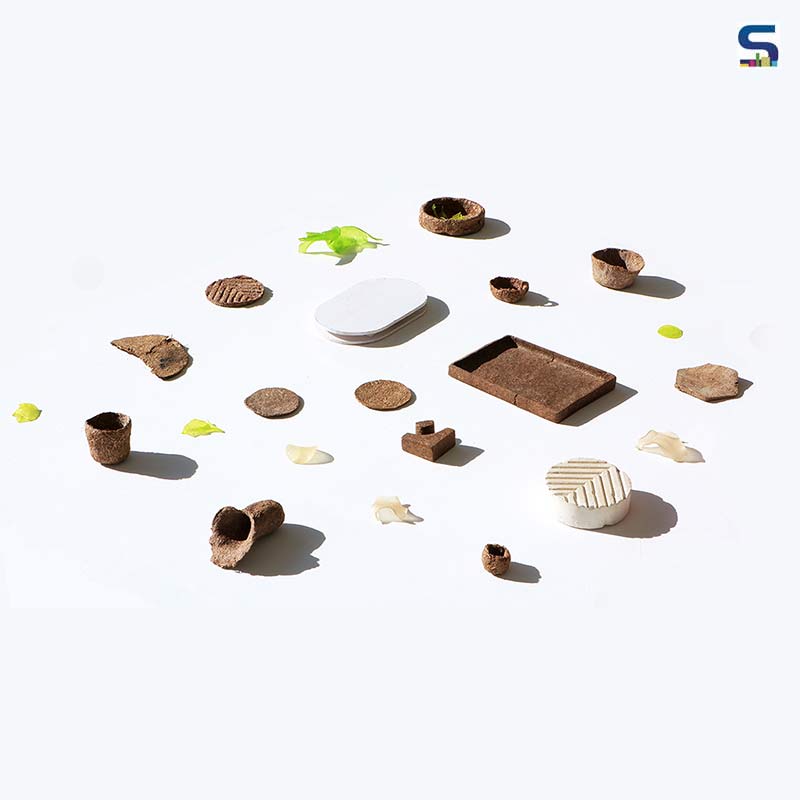
With the aim to create a sustainable future, industrial designer and material researcher Gaurav MK Wali initiated the Cheer Project – a plan to reimagine product design in ways that are not only sensible for the environment but are also aesthetically appealing and usable. Read on to know more about the project on SURFACES REPORTER (SR).
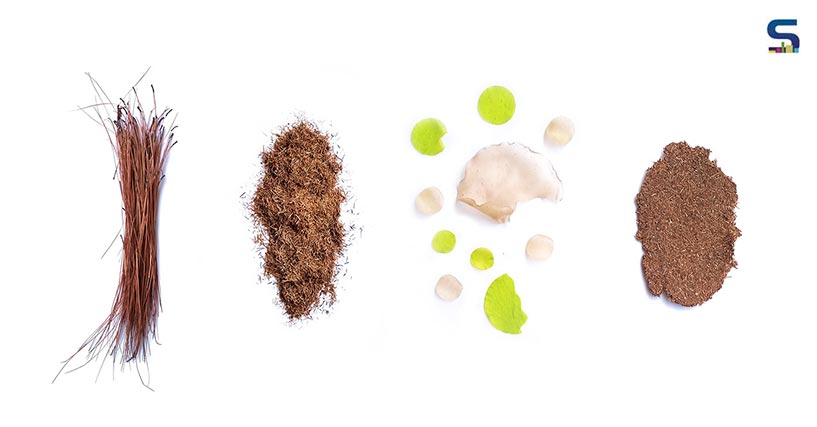
Concept
Driven by the curiosity to investigate the intersection of current environmental and socioeconomic issues through design solutions that would mutually benefit humans and nature, Gaurav has transformed pine needles into a 100 per cent bio-based and biodegradable material that can be incorporated into a variety of products such as coasters, planters, bowls, trays and other accessories.
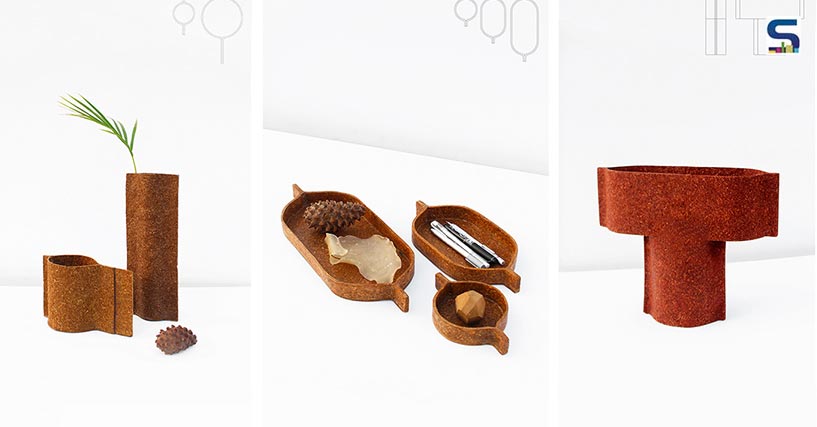
The Cheer Project explores a series of objects made of pine needle bio-composite offering properties such as strength, flexibility, rigidity, formability and modularity. According to Gaurav, “The Cheer Project offers tactile and narrative ruminations on the cyclical nature of life and death, thereby creating something ephemeral that decays gracefully.”
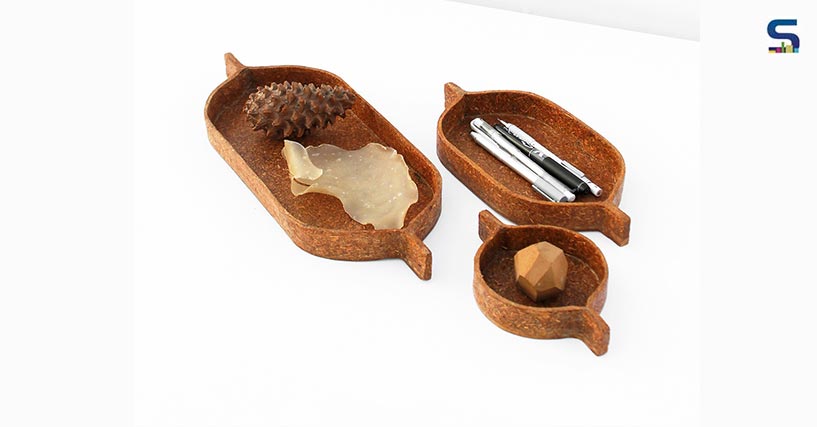
One step forward to curbing climate change
The Indian state of Himachal Pradesh, located on the foothills of the Himalayas, is abundantly blessed with pine forest which is spread across nearly 40,000 sqkm. Despite its quaint valleys and snow-clad mountains, the region is facing menacing environmental complications that are majorly caused by pine needles – fallen leaves of pine trees. Beginning from forest fires, water scarcity to even unemployment, these pine needles cause a huge impact on life and the entire ecosystem.
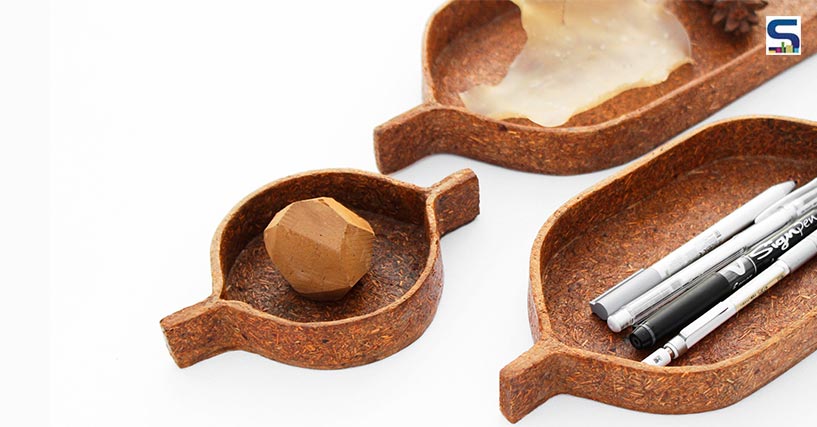
The fallen dry pine needles on the forest grounds have been known to cause frequent forest fires. Nearly 2,500 cases of forest fires had been reported in 2018 in the Himachal Pradesh. Additionally, as per Amazon Rainforest Fires.Australia Bush Fires, the magnitude of wildfires in India has increased by 132 per cent since 2015, of which 2019 and 2020 witnessed some of the most devastating episodes.
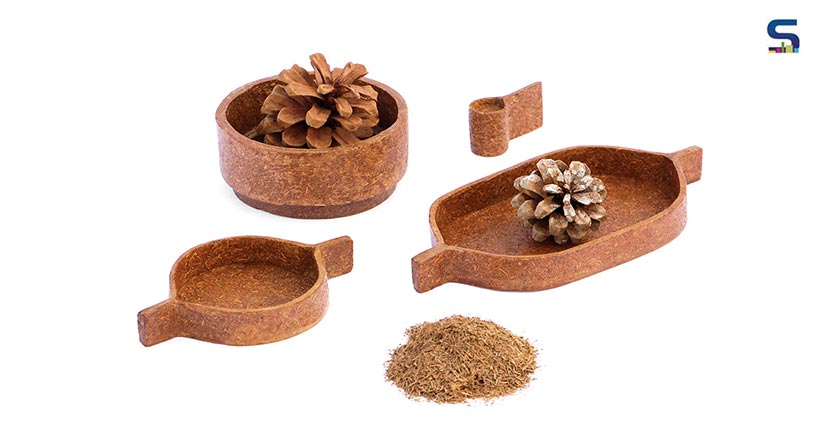
It is difficult to decompose the pine needles on account of their structure. The fallen leaves form a layer on the ground and continue to pile up, if not taken away. This thick layer of pine needles does not allow the natural water to get underneath the earth, which causes water scarcity. Also, pine needles contain lignin, which is proven to be an excellent fuel.
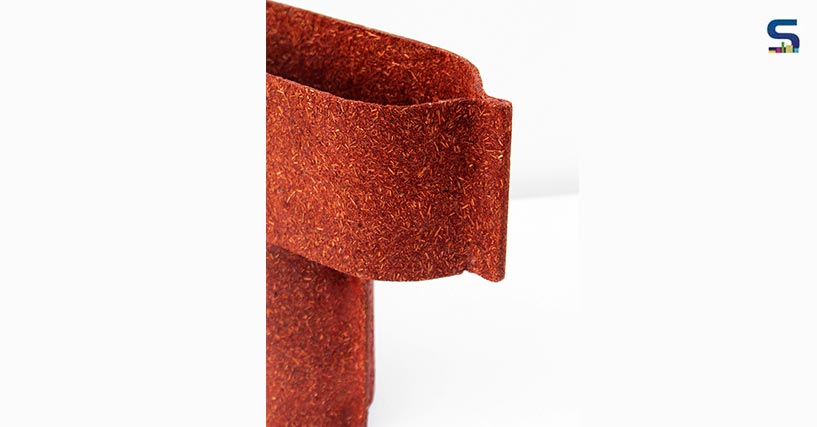
Gaurav’s Cheer Project, thus, aims to tackle this crisis holistically by separating fibres of the needles through shredding, and developing it into a composite with the help of natural binders and waxes. The raw materials are procured by the indigenous communities located near the pine forests. The fall pine needles are processed into a fibre with locally-built, low-cost machinery. To create the pine composite, the pine fibre is mixed with natural binders. This developed composition is 100 per cent bio-based, biodegradable, recyclable, fire retardant and water repellent. The composition causes no pollution nor generates any waste during the process. Additionally, the products can be composted at the end of their lifecycle. The bio-composite can be further used by local artisans to manufacture sustainable homeware products, thereby empowering the indigenous communities by creating livelihood opportunities for them.
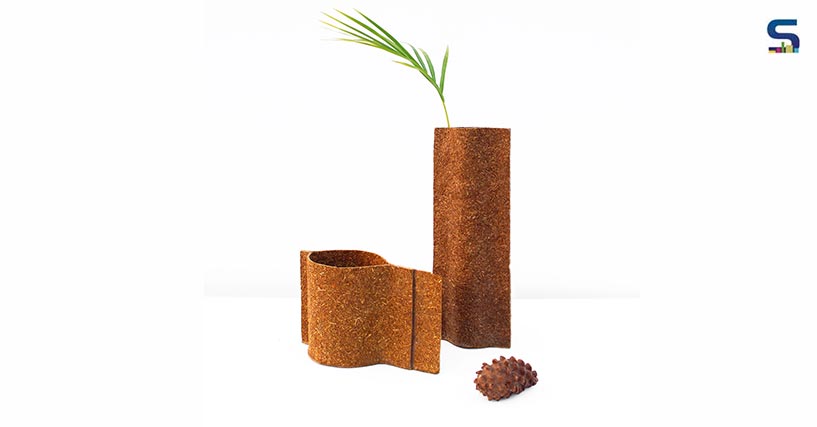
The Cheer Project not only aims to tackle the wildfire issue and encourage sustainable habits by eliminating plastic pollution but also helps in boosting the rural economy of the state.
Image credits: Gaurav MK Wali